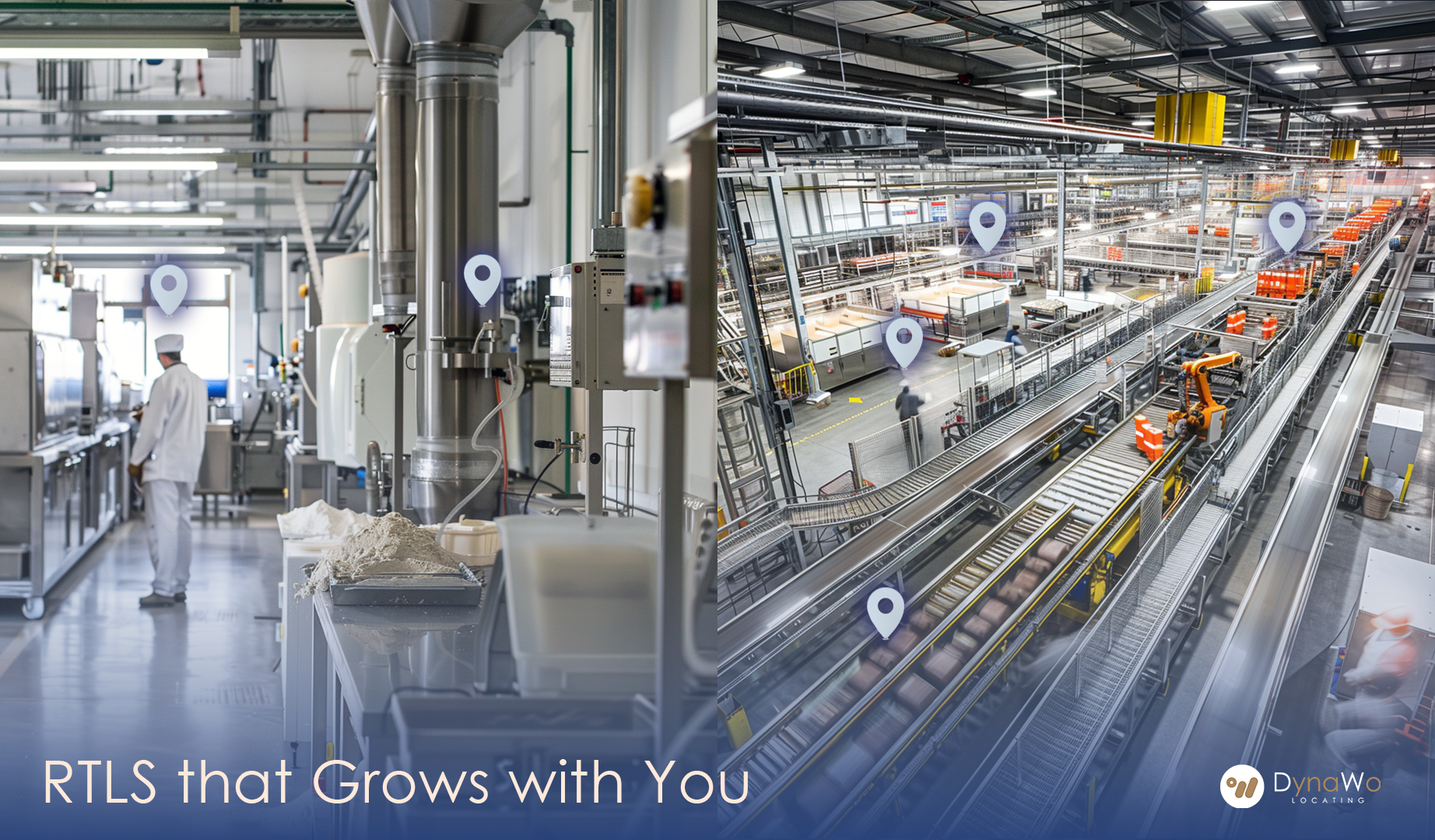Many RTLS deployments feel solid at first — until they outgrow their design.
Here’s what it’s often seen:
- A production line changes — and the tag logic doesn’t cover the new zone;
- A client wants to track new asset types — but the dashboard becomes unreadable.
A second shift is added, but alert rules don’t align with their workflow — causing missed triggers or false positives. These aren’t “system failures” — they’re design limitations that show up when operations evolve.
Real-world Example: Food Manufacturing Site
This client began with a compact RTLS setup to track mixing vessels between workstations. As operations grew, they needed to:
- Add freezer cart tracking, integrating temperature sensors alongside location data;
- Adjust timing logic based on seasonal staffing patterns;
- Adapt rules for new sanitation zones alongside compliance tracking.
Because their system was built with modular architecture:
- Anchors could be added without recalculating the entire coverage grid;
- Rule sets could be updated directly from the dashboard without code changes;
- Hybrid systems use modular, interoperable logic – individual components can be updated or expanded for new shifts or zones, without logic errors.
What Scalability Actually Looks Like in Practice
The best RTLS are built for long-term adaptability with:
- Location engines capable of scaling up to thousands of updates per minute, leaving ample space for additional anchors;
- Flexible rule engines so supervisors (not just developers) can update logic in real time;
- Logic layers that can be adjusted by supervisors — not just engineers;
- Hybrid tech stacks (BLE, UWB, GPS, LoRaWAN) that can be expanded or swapped without requiring firmware rewrites.
Your operations will shift — seasonally, physically, and strategically. A good RTLS supports that shift without friction.
Because the best systems don’t just solve today’s needs.
They’re ready for tomorrow’s questions, too.
#DynaWo #RTLS #ScalableSystems #SmartManufacturing #WarehouseTech #FlexibleRTLS #LongTermDesign #IoTDeployment

